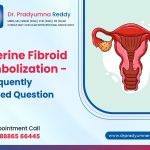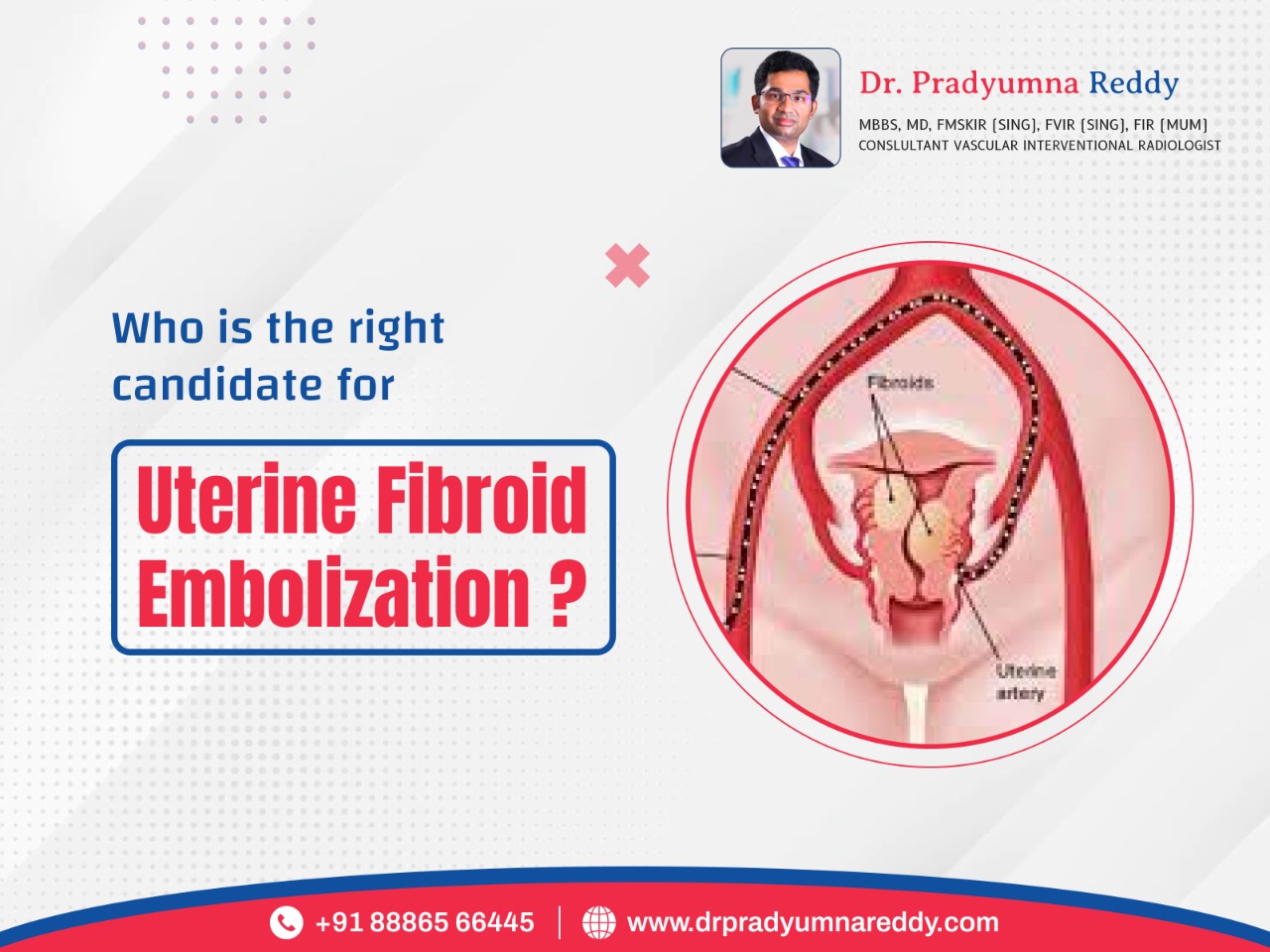If you have been diagnosed with uterine fibroid embolization, you might experience mixed emotions that affect your physical and mental health. You may feel relaxed after knowing the cause of your signs. But at the same time, you may be wondering about the available treatment options for uterine fibroids. In most cases, fibroids are non-cancerous and they are mostly seen in women. Though they are not cancerous, uterine fibroids can lead to heavy and painful periods, constipation, pelvic pressure, etc.
The treatment for uterine fibroids is based on various factors such as your age, your signs, treatments you had earlier, etc. Uterine Fibroid Embolization (UFE) is an effective and minimally invasive treatment for uterine fibroid embolization.
What is Uterine Fibroid Embolization?
An interventional radiologist will perform the UFE procedure and it is a minimally invasive procedure. During the procedure, the radiologist inserts a thin catheter either from the wrist or groin artery. Using fluoroscopy X-ray, the radiologist will direct the catheter towards the uterus’s artery that is supplying blood to the fibroid. A contrast dye or small beads are passed through the bloodstream to block the blood supply to the fibroid. Once the procedure is completed, the catheter will be removed and the fibroid eventually shrinks.
Many patients who undergo UFE procedures have reported a reduction in their signs and an improvement in their overall health.
Who Can Undergo Uterine Fibroid Embolization?
Women who are suffering from uterine fibroids experience signs ranging from mild to severe. The following are the signs that suggest you can undergo a UFE procedure:
- Heavy and abnormal menstrual cycle: Most women who have uterine fibroids experience irregular, and heavy periods, and a prolonged menstrual cycles. All these together make periods more tough than usual. Some women may have to use a pad and tampon at the same time due to heavy bleeding. They also need to change it frequently and it makes periods more uncomfortable. In some cases, they may even need to take off from their work due to heavy periods. Heavy bleeding can also lead to anemia where the count of red blood cells decreases. If you are experiencing a similar condition, you should seek treatment at the earliest possible.
- Severe pelvic pain: Uterine fibroids can cause severe cramps in the pelvic pain and they do not improve even with painkillers. You may find it difficult to stand straight due to severe pelvic pain. The pain varies based on the size of the fibroid.
- Frequent urination: In some cases, the fibroid can exert pressure on the other organs of the body. If the fibroid exerts pressure on the bladder, it causes frequent urination. If the fibroid is large, it can even put pressure on the rectum and affects bowel movements as well.
- Not suitable for surgery: Women with certain issues such as obesity cannot undergo surgery. UFE is suitable for those candidates.
- To retain the uterus: Uterine fibroids can be treated with a hysterectomy where the uterus will be removed. Some women do not wish to remove their uterus as they might be planning for a pregnancy. In those cases, UFE is the right choice.
Looking for an Effective Treatment for Uterine Fibroids? Schedule an Appointment with Dr Pradyumna Reddy Today
If you have troubling signs of uterine fibroids, you should seek medical assistance instead of trying to diagnose yourself. Dr Pradyumna Reddy is an interventional radiologist in Hyderabad with over 6 years of experience. He has helped several patients suffering from fibroids and can definitely help you. He focuses on a patient-centric treatment method and this makes his treatment unique. If you are having signs of uterine fibroids or have been diagnosed with uterine fibroids, meet Dr Pradyumna Reddy to prevent your disease from further progression.






